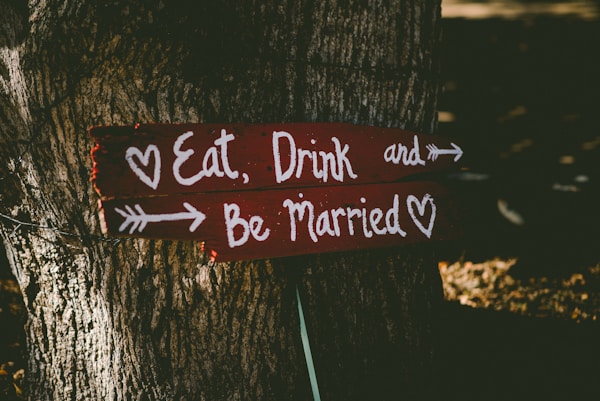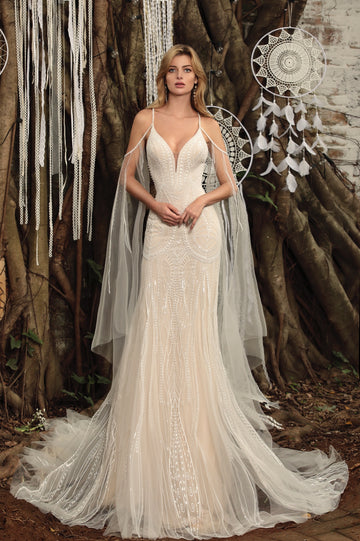Exploring Sustainable Wedding Dress Fabrics: A Guide to Eco-Friendly Choices
Exploring Sustainable Wedding Dress Fabrics: A Guide to Eco-Friendly Choices
Understanding Sustainable Wedding Dress Fabrics
In recent years, the movement towards sustainability has permeated various industries, including the wedding attire sector. Brides are increasingly seeking sustainable wedding dress fabrics that not only look exquisite but also reflect their commitment to the environment. This comprehensive guide will delve into various sustainable fabric options, their benefits, and how they align with an eco-conscious approach to weddings.
What Are Sustainable Wedding Dress Fabrics?
Sustainable wedding dress fabrics are materials that are produced in a way that minimizes environmental impact. Typically, this involves the use of natural fibers, sustainable manufacturing processes, and ethical labor practices. By choosing sustainable fabrics, brides can significantly reduce their carbon footprint and support ethical fashion.
Types of Sustainable Wedding Dress Fabrics
Below are some popular sustainable fabrics that brides can consider for their Wedding dresses:
| Fabric Type | Characteristics | Environmental Impact |
| Organic Cotton | Soft, breathable, and versatile. Can be dyed with natural colors. | Grown without synthetic pesticides, reducing soil and water pollution. |
| Hemp | Strong, durable, and naturally resistant to pests. Unique texture. | Requires little water and no chemicals for cultivation. |
| Bamboo | Smooth, soft, and breathable. Naturally antibacterial. | Fast-growing and requires minimal resources, though processing can vary. |
| Silk (Peace Silk) | Luxurious feel with a natural sheen. Lightweight and drapes beautifully. | Harvested without killing the silk moths, promoting ethical practices. |
| Linen | Textured, breathable, and timeless. Perfect for warm weather weddings. | Made from flax plants, which require less water and pesticides. |
The Benefits of Choosing Sustainable Fabrics
Opting for sustainable wedding dress fabrics comes with numerous advantages beyond environmental sustainability:
1. Ethical Manufacturing
Many sustainable fabrics are produced using fair labor practices, ensuring that workers are paid fair wages and work in safe environments. This ethical guarantee helps brides feel good about their purchase.
2. Healthier For You
Using organic materials means that many of the harmful chemicals often present in conventional fabrics are absent, making them better for both the environment and your skin. This is particularly important for Wedding dresses, which are worn for extended periods.
3. Unique and Customizable Designs
Sustainable fabrics often come in various textures and finishes, allowing for beautiful, one-of-a-kind designs. Many designers are now specializing in eco-friendly materials, providing brides with a variety of style options.
How to Choose the Right Fabric for Your Wedding Dress
When selecting the right sustainable fabric for your wedding dress, consider the following factors:
1. Wedding Location and Season
The wedding venue and season can significantly influence your fabric choice. For a summer wedding, lighter fabrics like organic cotton or linen will keep you cool. Conversely, for a winter wedding, heavier fabrics like peace silk or hemp will provide warmth.
2. Personal Style
Your personal style should dictate fabric choice. Consider what silhouettes you prefer and how different fabrics will drape. Silk is ideal for flowy styles, while hemp may be better for structured designs.
3. Budget
Sustainable fabrics can sometimes be more expensive than conventional materials. Setting a budget beforehand can help streamline the selection process. Keep an eye out for local designers or brands that offer sustainable options at a range of price points.

Finding Sustainable Wedding Dress Designers
Many fashion designers now focus on sustainability, offering beautiful dresses made from eco-friendly materials. Here are a few renowned names in this sphere:
- Reformation: Known for their trendy, sustainable Wedding dresses made from recycled materials.
- Willowby by Watters: Offers a collection of dresses made from sustainable fabrics.
- BHLDN: Features a selection of stunning dresses crafted from environmentally friendly materials.
- Grace Loves Lace: Renowned for their sustainable practices and exquisite designs, ideal for the modern bride.
Frequently Asked Questions About Sustainable Wedding Dress Fabrics
1. Are sustainable wedding dress fabrics more expensive?
While some sustainable fabrics can be pricier due to ethical sourcing and manufacturing, there are options at various price points. Investing in a sustainable dress can save money long-term, given its quality and longevity.
2. Can I find sustainable fabrics locally?
Many cities have local designers who use sustainable materials. Visiting local bridal boutiques or attending eco-focused wedding fairs can help you find options close to home.
3. How do I care for my sustainable wedding dress?
Caring for a sustainable dress is similar to conventional dresses. General tips include dry cleaning only when necessary, using non-toxic detergents, and proper storage to maintain the garment’s integrity.
Conclusion: Making a Sustainable Choice for Your Wedding
Choosing sustainable wedding dress fabrics is not only a fashion statement but also an environmental one. By selecting organic, recycled, or ethically sourced materials, brides can honor their values while looking breathtaking on their special day. Remember to consider your style, season, and budget when exploring sustainable options. With numerous designers embracing eco-friendly practices, the perfect sustainable wedding dress is more accessible than ever. Choose wisely, and make an impactful statement on your wedding day!
